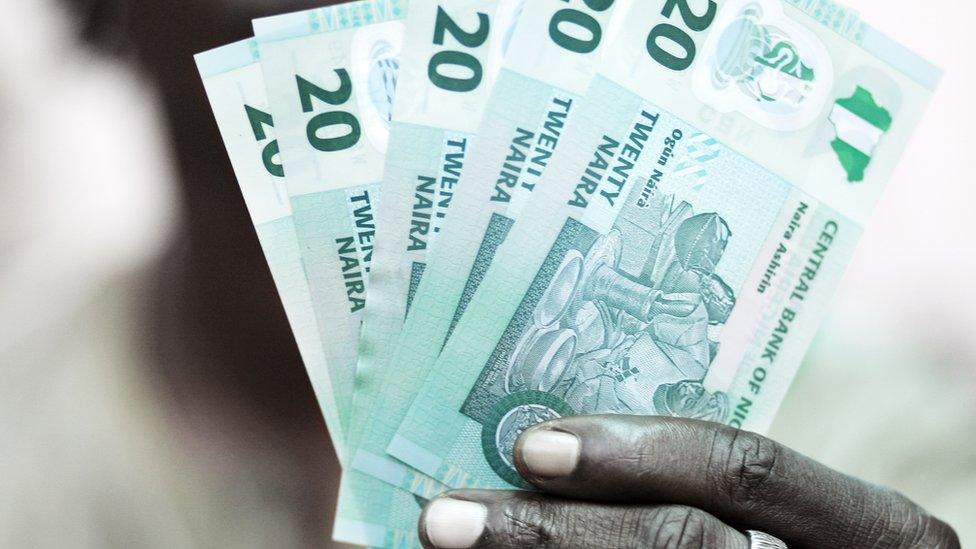Five Nigerians jailed for exhuming skull 'to get rich'
- Published

High levels of poverty and unemployment have fuelled money-making rituals in Nigeria
Five men have been jailed for 12 years each in Nigeria after they were convicted of exhuming a human skull.
They had planned to take it to a traditional doctor who said it was needed for rituals that would make them rich.
The men pleaded guilty after being caught with the skull in a bag.
The prosecutor told the court that the men had dug up a body buried three years earlier at a Muslim cemetery in the north-central Niger state.
"They said the herbalist informed and promised all of them that they would share the wealth from the said criminal activity and directed them to look for the human skull," the prosecutor was quoted as saying by the privately owned Daily Punch newspaper.
Security officers had arrested the young men, who are aged between 18 and 28, in early September as they transported the remains to a third party, on the instructions of a traditional doctor.
A court in Minna, the capital of Niger state, declared the men guilty on the charges of criminal conspiracy, trespassing on burial grounds and unlawfully possessing a human skull.
The traditional doctor was not arrested and charged.
Belief in "juju" - sometimes known as voodoo or magic - is fairly widespread in Nigeria, with many combining it with either Christianity or Islam, .
Such beliefs, especially that human body parts and charms can produce money from a clay pot, have led to a recent wave of gruesome murders in Nigeria, often targeting individuals seen as vulnerable, including children, single women and people with disabilities.
Local authorities have also said that body parts are sold and used in rituals believed to generate wealth.
Money-making rituals in Nigeria have also been fuelled by mounting economic desperation, in a country where four out of 10 people live in poverty, according to World Bank data.
- Published21 March 2022
- Published2 June 2020